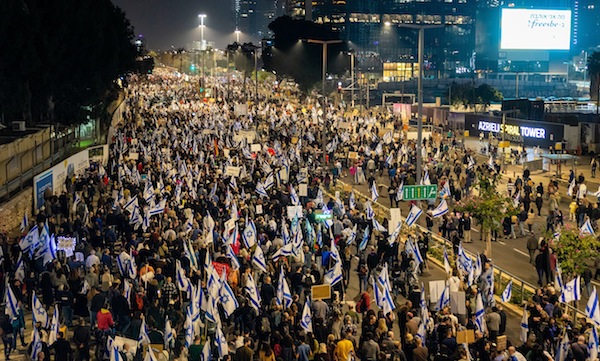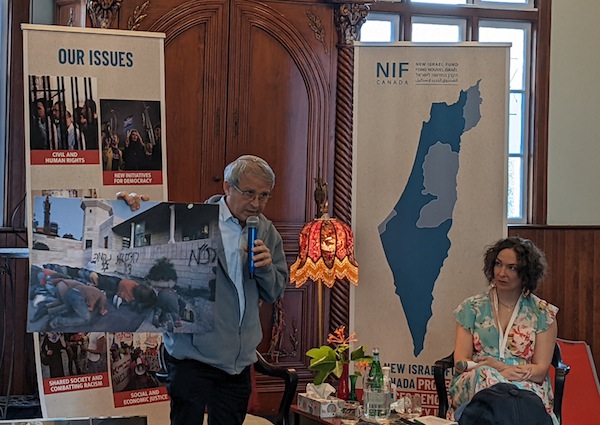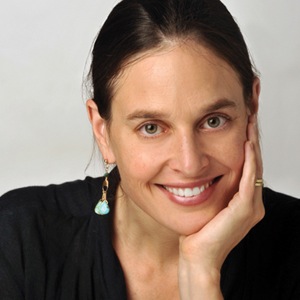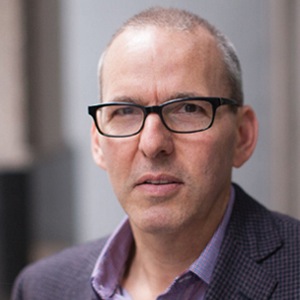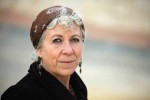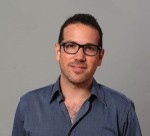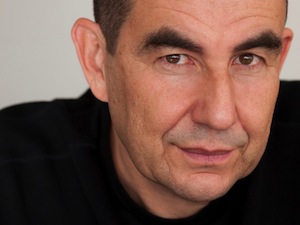In Tel Aviv on Jan. 28, Israelis demonstrate against their government’s judicial reform proposals. A majority of Canadian Jews also oppose the proposals. (photo by Oren Rozen)
A new poll shows that most Canadian Jews oppose policies favoured by the current Israeli government. Fully three-quarters of Canadian Jews say they are emotionally attached to Israel. However, 56% claim that Israel’s government is moving in the wrong direction, compared to just 13% who say it is moving in the right direction.
Opposition is especially strong to laws proposed by members of the governing coalition that would allow gender segregation in some public places, ban Pride parades and legalize conversion therapy for LGBTQ+ people on religious grounds, with between 83% and 88% of Canadian Jews expressing opposition to such moves.
Some 73% of Canadian Jews oppose judicial reform that would make it easier for the Israeli government to reverse Supreme Court decisions, thus adding their voices to that of well-known Canadian jurist and former minister of justice Irwin Cotler, among others.
Two-thirds of Canada’s Jews oppose the idea of disallowing Palestinians from serving in the Israeli parliament, compared to just 15% who support the idea. About twice as many Canadian Jews oppose building new Jewish settlements in the West Bank and incorporating parts of the West Bank into the state of Israel as favour such initiatives.
The so-called “grandparent clause” in Israel’s Law of Return allows anyone with one Jewish grandparent to claim citizenship, but religiously Orthodox members want the clause removed. Some 58% of Canadian Jews oppose such a move, while 17% favour it – hardly surprising since fewer than one-fifth of Canadian Jews are Orthodox.
Israel’s minister of national security was once convicted of incitement to racism and supporting a terrorist organization. Israel’s minister of finance recently described himself on radio as a “proud homophobe.” JSpaceCanada and the New Israel Fund of Canada have proposed that the Canadian government refuse to meet or build relationships with these ministers. Nearly six in 10 Canadian Jews agree with that proposal, while just two in 10 disagree.
Commenting on the results, Joe Roberts, board chair of JSpaceCanada, said, “These results couldn’t be clearer, Jewish Canadians are overwhelmingly concerned with the direction and policy decisions proposed by Israel’s radical governing coalition. These are not the shared values that the Canada-Israel relationship was built upon. Jewish Canadians, like the hundreds of thousands of Israelis taking to the streets to protest the undermining of democracy and assault on the human rights of Palestinians, expect bold and decisive leadership on this issue from the government that represents us in Ottawa.”
Ben Murane, executive director of the New Israel Fund of Canada, said, “Canadian Jews are worried that a country that removes basic democratic checks and balances and eviscerates the independence of the judiciary can no longer be referred to seriously as a full democracy. They overwhelmingly oppose the Israeli government’s legislation stripping power from the country’s judiciary, one of the few remaining institutions willing to protect the rights of Palestinians, LGBTQ people, women and other vulnerable populations.”
The poll was funded by JSpaceCanada and the New Israel Fund of Canada, organizations that promote democracy and equality in Israel, as well as a two-state solution to end the Israel-Palestine conflict. It was designed and analyzed by Prof. Robert Brym of the department of sociology and Centre for Jewish Studies at the University of Toronto. Brym commented, “To corroborate these findings we need more polls with larger samples asking similar questions. However, this poll provides a fair baseline representation of Jewish community perspectives on issues of vital importance to the approximately 404,000 Canadians who identify as Jewish by religion or ethnicity.”
The poll, fielded between Feb. 16 and 28, 2023, by EKOS Research Associates, is based on a nationally representative sample of 288 Canadian adults who identify as Jewish by religion or ethnicity. Nineteen of 20 polls like this one would likely yield results with less than a 5.8% margin of error.
– Courtesy JSpaceCanada

